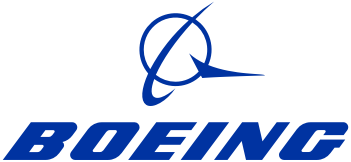
Enrol on this course
Please use the region selector at the top of the website if you are purchasing from outside the UK.
Note: *All prices exclusive of VAT.
Choose how you want to study
Overview
This course gives you practical skills to model business processes, analyse how work really flows, and design improvements that deliver better outcomes for customers and the organisation.
What you will gain
- A clear understanding of why and when to model business processes
- Confidence working with enterprise, event-response, and task-level models
- Skills to use BPMN/UML-style notation to describe real processes
- Techniques to measure process performance and spot bottlenecks
- Approaches to redesign and improve ‘as-is’ processes
- Insight into managing the change when new processes are implemented
Who this course is for
- Business analysts and process analysts
- Business change managers and project managers
- Operational managers responsible for process performance
- Anyone involved in analysing or improving business workflows
- Professionals preparing for the BCS Modelling Business Processes exam
Benefits
Understand process context
Model end-to-end value
Use standard notation
Identify improvements
Support successful change
Gain a respected credential
Delivery
Compare learning options to find the format that suits you best.
Course
This course takes you from the fundamentals of process modelling through to analysing, improving, and implementing new designs, all aligned to the BCS Modelling Business Processes syllabus.
See the bigger picture
Model at enterprise level
Model process flows
Describe task-level work
Improve business processes
Plan and manage change

Curriculum
The BCS Modelling Business Processes course covers all topics in the official practitioner syllabus.
- The context for business process modelling
- Modelling at the enterprise level
- Modelling at the event-response level
- Modelling at the actor-task level
- Improving business processes
- Managing and implementing change
Full curriculum details
The context for business process modelling
- Purpose and benefits of business process modelling
- Benefits for customers, staff, and the wider organisation
- The three levels of the business process hierarchy
- Process view versus functional view of the organisation
Modelling at the enterprise level
- Organisational models such as value chains and SIPOC
- Using Harmon’s Organisational Model to frame processes
- Linking enterprise-level processes to the value proposition
- How processes support product, customer, and reputation goals
Modelling at the event-response level
- Key elements: events, actors, tasks, outcomes, and process flow
- Using swimlanes, decisions, forks, joins, and timelines
- Importance of using standard notations (e.g. BPMN, UML)
- Distinguishing processes, tasks, and steps within the hierarchy
- Types of business events: external, internal, and time-based
- Defining process performance measures and customer expectations
Modelling at the actor-task level
- Components of a task description (inputs, outputs, triggers, rules, measures)
- OPOPOT: one person, one place, one time
- Documenting steps and business rules within a task
- Using UML activity diagrams, Structured English, and use case descriptions
Improving business processes
- Approaches to improvement: simplification, redesign, bottleneck removal
- Changing task sequence, redefining boundaries, and automation
- Considering Robotic Process Automation (RPA) for repetitive tasks
- Challenging business rules, policies, and assumptions
- Identifying causes of poor performance such as skills, resources, ownership, and systems
- Using scenarios to test new process designs and identify deviations
- Preparing gap analyses to derive functional requirements for IT support
Managing and implementing change
- Using the POPIT™ model to assess impacts on people, organisation, process, information, and technology
- Implementation strategies: direct changeover, parallel running, pilot, and phased approaches
- Choosing appropriate strategies to introduce new process designs

Exam & certification
What to expect from the BCS Modelling Business Processes Practitioner exam and how we help you pass.
- Format: Multiple choice (objective test)
- Questions: 40
- Pass mark: 63% (25/40)
- Duration: 60 minutes
- Materials: Closed book
- Prerequisites: None
- Results: Same day
- Exam access: Online
Your path to success
Reviews & success stories
Knowledge Train by numbers
FAQs
What is BCS Modelling Business Processes?
BCS Modelling of Business Processes means making visual pictures of a company’s tasks. This kind of modelling helps businesses see their workflows and find ways to get better. By using BCS training, you can learn about business operations and the skills needed to improve business processes.
Why is business process modelling important?
Business process modelling is very important for many reasons. It has many good points, like better management of business jobs and resources. By learning business process modelling skills, companies can make their operations smoother. This helps in improving business processes and reaching their goals.
How can BCS Modelling improve business efficiency?
BCS Modelling can greatly boost business efficiency. Getting a BCS certification gives you the know-how to make business changes and improve processes. These methods help spot inefficiencies and make tasks better, leading to improved organisational performance. Using these ideas supports ongoing improvement and good management of business operations.
Which techniques are used in business process modelling?
Many techniques are used in business process modelling to show workflows and processes. Common methods include:
- Flowcharts
- Business Process Model and Notation (BPMN)
- Data Flow Diagrams (DFD)
- Unified Modelling Language (UML)
These techniques help document tasks and make it clear how different processes connect, making it easier to find and fix problems.
What are the core components of a business process model?
A business process model has several key parts. These include tasks, roles, inputs, and outputs. Management uses these pieces to create a system that documents tasks and processes step-by-step. Knowing these parts helps in organising and managing business activities better.
How does BCS certification benefit Business Analysts?
Getting a BCS certification has many good points for business analysts. This professional certification helps build key skills and knowledge. The certification process includes study material that gets analysts ready for real-world challenges. Also, BCS certification can help career growth by making analysts stand out in the job market.
How to get started with BCS Modelling Business Processes?
To start with BCS modelling business processes, you need training and certification. BCS courses provide essential knowledge on business process modelling. Beginners can follow a guide to learn the basics of process design. Getting a BCS certification can help boost your career and skills in this field.
How to prepare for BCS certification exams?
Preparing for BCS certification exams requires good planning. Use study guides and practice tests to help you prepare. Focus on certification requirements and develop good test-taking strategies. A detailed study plan covers all course content, leading to exam success. With hard work and the right resources from Knowledge Train, you can achieve your certification goals.
What are the initial steps for modelling business processes?
To start modelling business processes, follow these simple steps:
- Identify objectives: Know what you want to achieve with your business process model.
- Gather information: Collect all necessary data and information about current processes.
- Involve stakeholders: Get team members and stakeholders involved early to hear their thoughts and get their support.
- Choose the right approach: Pick a suitable method or framework for developing business models based on your needs.
These steps help set a solid base for any business processes course or project management work.
How do you document business processes accurately?
Accurate documentation of business processes is important. Here’s how:
- Define tasks clearly: Write down every task involved in the process.
- Choose your method: Decide between paper-based methods or electronic methods based on what works best for your team.
- Use standardised formats: Keep formats consistent, like using flowcharts or diagrams.
- Double-check information: Verify the accuracy by checking with team members and records.
Following these steps ensures accurate process documentation, which is vital for improvement.
What tools are required for business process modelling?
The right tools can make business process modelling easier. Here are some you might need:
- Modelling software: Tools like Microsoft Visio or Lucidchart help create visual models.
- BPM tools: Business Process Management (BPM) tools like Bizagi or Appian for detailed process mapping.
- Digital tools: Use various digital platforms for collaboration and sharing.
These tools help you develop accurate and efficient business process models using modern technology.
What are the typical obstacles faced in modelling business processes?
When modelling business processes, you might face several common problems:
- Complexity: Business processes can be very detailed and complicated.
- Resource constraints: Limited time, budget, or people can slow you down.
- Resistance to change: Team members might not want to try new processes.
- Bottlenecks: Finding and fixing bottlenecks can be tough.
Knowing these problems can help you deal with them better.
How can you overcome common business modelling challenges?
To overcome challenges in business modelling, try these strategies:
- Effective communication: Make sure everyone talks clearly and openly.
- Stakeholder engagement: Actively involve stakeholders to get their support.
- Training programs: Train team members to reduce resistance and improve process adoption.
- Utilise tools: Use problem-solving techniques and tools designed for reducing risks.
These solutions can help you overcome common business modelling challenges.
What tools and software help in addressing modelling issues?
Certain tools and software can help solve issues in business process modelling:
- BPM software: Programs like IBM Blueworks Live or ARIS have strong features for business process modelling.
- Automation solutions: Tools like UiPath can automate repetitive tasks, reducing errors.
- Issue resolution tools: Applications such as Freshservice help in troubleshooting and resolving issues quickly.
Using these tools can streamline solving problems related to business process modelling.
By following these steps and using the suggested tools, you can effectively model and improve your business processes. For more advanced training, consider exploring courses offered by organisations like Knowledge Train to enhance your skills in project management and business process modelling.
Still have questions? Contact us by phone on 0207 148 5985, via live chat, email, or by completing the form below.
How to find us
Knowledge Train
20 Old Bailey, London, EC4M 7AN,
England, United Kingdom.
Call +44 (0)207 148 5985
Opening hours
Monday to Friday – 09:00 to 17:15
Get in touch
BCS Modelling Business Processes course
The BCS Modelling Business Processes course, delivered by the British Computer Society (BCS), teaches learners how to model business processes effectively using globally recognised process modelling techniques and frameworks.
What Is a BCS Modelling Business Processes course?
The BCS Modelling Modelling Business Processes course focuses on identifying, analysing, and improving business process management through structured modelling practices and analytical tools.
Who Should enrol on a BCS Modelling Business Processes course?
This BCS Modelling Business Processes course benefits professionals in business analysis, consulting, and project management who aim to master modelling techniques and process improvement methodologies.
Why Is Business Process Modelling Important?
Business process modelling helps organisations visualise business processes, identify inefficiencies, and drive continuous improvement using frameworks like POPIT and CATWOE.
How Does BCS Modelling Business Processes Support Business Change?
Through structured modelling techniques, BCS Modelling Business Processes training equips learners to manage business change, align operational processes, and measure performance outcomes.
Understanding Business Process Modelling Techniques
Modelling business processes involves using analytical tools and conceptual models to represent how business activities achieve organisational objectives.
Which Business Process Modelling Techniques Are Taught?
BCS Modelling Business Processes training covers key techniques including flowcharting, UML, BPMN, and GAP analysis to identify process dependencies and improvement areas.
How Do Business Process Modelling Techniques Improve Processes?
By applying structured Business Process modelling methods, learners can visualise interactions, optimise workflows, and implement business change initiatives.
Using Process Modelling Techniques In Business Analysis
Business Process Modelling techniques form the foundation of business analysis, helping analysts connect conceptual business activity with measurable business outcomes.
What Is The Relationship Between Business Process Modelling And Strategy?
Effective Business Process modelling translates strategic objectives into operational activities, ensuring business processes are fully aligned with organisational direction.
Core Concepts In Modelling Business Processes training
BCS Modelling Business Processes courses explore the fundamental concepts required to perform effective business process modelling within a business environment.
What Are The Key Elements Of Business Processes?
Business Processes consist of inputs, activities, and outputs that are modelled to identify bottlenecks, redundancies, and opportunities for automation.
Understanding Business Process Boundaries And Interfaces
Defining business process boundaries ensures clarity and helps analysts identify how each process interacts with others within the business architecture.
How Does Business Process Modelling Support Analysis?
Business process modelling supports business analysis by providing a visual framework that enhances stakeholder engagement and communication.
Why Use Business Process Modelling Techniques In Business Change?
Business Process Modelling techniques enable analysts to simulate business change, reduce risk, and ensure alignment with strategic goals.
Applying BCS Modelling Business Processes In Practice
Practical applications of BCS Modelling Business Processes learned on a course include mapping current business processes and designing improved future-state models.
How Is Business Process Modelling Applied In Real Projects?
Participants use modelling business processes tools to analyse workflows, assign metrics, and realise measurable business improvement.
What Tools Support Business Process Modelling?
Popular Business Process Modelling tools include Visio, Bizagi, and Lucidchart, which support business process modelling and process management visualisation.
Integrating Business Process Modelling With Project Management
BCS business process modelling techniques integrate with project frameworks like PRINCE2 and Agile to ensure consistent delivery of business change.
How Do BCS Modelling Business Processes Learners Demonstrate Modelling Competence?
BCS Modelling Business Processes course learners produce business process models, case studies, and project documentation as part of their BCS professional certification assessment.
BCS Modelling Business Processes Training, Certification, And Assessment
BCS Modelling Business Processes training prepares learners for exams and certifications recognised globally by the Chartered Institute for IT.
What Does The BCS Modelling Business Processes Certification Include?
The BCS Modelling Business Processes certification covers business process management, business process modelling, and analysis practice with a final exam or oral examination.
Where Can You Study BCS Modelling Business Processes?
BCS Modelling Business Processes training is available online, in virtual classrooms, and through corporate training programmes delivered across the United Kingdom.
How Do BCS Modelling Business Processes Online Courses Support Learning?
BCS Modelling Business Processes online courses and e-learning platforms offer flexible study options, combining theory with practical exercises on process modelling techniques.
What Are The Benefits Of Professional Modelling Business Processes Certification?
BCS Modelling Business Processes certification validates expertise in business process analysis, providing learners with credentials recognised by employers and consulting firms.
Advanced Modelling Techniques And Best Practices
Advanced modelling techniques extend beyond basic process maps, introducing analytical frameworks and performance measurement systems.
How Do Advanced Modelling Techniques Improve Accuracy?
Advanced techniques such as data analysis and balanced scorecards improve measurement, accuracy, and realisation of strategic objectives.
What Are Common Challenges In Process Modelling?
Challenges include managing complex workflows, stakeholder alignment, and ensuring data consistency across business systems.
How Can Modelling Techniques Reduce Complexity?
Using conceptual business activity models simplifies large processes, creating clarity and improving stakeholder communication.
How Is Success Measured In Business Process Modelling?
Success factors are evaluated through key performance indicators that align process efficiency with business outcomes.
Career Impact And Professional Growth
Completing the BCS Modelling Business Processes course supports career advancement for analysts, consultants, and project managers.
How Does BCS Modelling Business Processes Certification Enhance Career Prospects?
Professionals gain analytical, technical, and consulting skills applicable across industries where business process management is critical.
What Roles Value BCS Modelling Certification?
Certified professionals often work as business analysts, process architects, or product owners within consulting or corporate environments.
Why Is Business Process Modelling An Essential Business Skill?
Business Process Modelling is essential for identifying inefficiencies, designing improvements, and ensuring continuous business process optimisation.
How Does Continuous Learning Support Business Process Modelling Skills?
Ongoing education through BCS Practitioner and Foundation pathways ensures professionals remain updated on modern Business Process modelling techniques.
Future Trends In Business Process Modelling
Future developments in Business Process process management focus on automation, AI integration, and advanced data modelling to optimise business performance.
What Innovations Are Shaping Business Process Modelling Techniques?
Emerging technologies like AI and digital twins are transforming how business processes are modelled, analysed, and improved.
How Will Business Process Modelling Evolve In The Next Decade?
Business Process Modelling will integrate real-time analytics and machine learning to deliver dynamic, data-driven business process management systems.
Why Is Continuous Modelling Improvement Vital?
Continuous improvement ensures that models remain relevant and capable of supporting evolving business activities and objectives.
How Does BCS Support Future Modelling Professionals?
The British Computer Society continually updates its curriculum to reflect the latest best practices in business analysis and process modelling.










